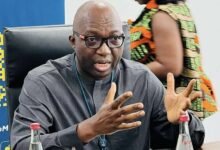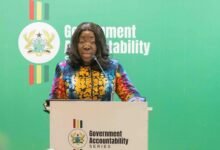Ghanaian youth urged to champion peace, devt

Resident Representative of the United Nations Development Programme (UNDP), Ghana, Dr Angela Lusigi, has urged the youth in Ghana to participate in decision making and champion peace and development.
He noted that while majority of Ghana’s voter population were youthful, representing 55.1 per cent, only 12 youth representing 4.36 per cent, out of the 155, who contested the 2020 General Elections entered the 8th Parliament of the 4th Republic.
Dr Lusigi made the call yesterday, in Accra, at the opening of a Sustainable Development Goal (SDG) 16 National Youth Dialogue, organized by UNDP, Ghana, and Youth Advocates Ghana, a Civil Society Organisation (CSOs), that champions youth welfare.
The event brought together young people, government institutional representatives and other stakeholders, including CSOs, to discuss SDG 16.
The two-day programme was on the theme “Mobilising Youth for the Achievement of SDG 16 in Ghana”
Dr Lusigi asked the youth to work together and promote peace, and “amplify their innovation and creative solution to the world.”
He said “in order for SDG 16 to be achieved, we must first ensure that young people have access to quality education. Education is the key to employment, entrepreneurship and decent work.
“When young people are financially independent and empowered, they contribute meaningfully to a peaceful and just society”.
The Chief Executive Officer (CEO) of the National Youth Authority (NYA), Mr Pius Enam Hadzide, said government has tackled a major obstacle to the achievement of “free, equitable and quality secondary education” for the youth.
“I refer to the introduction of the free Senior High School (SHS) by the government, in 2017,” he said.
Under the policy, the government bears the cost of tuition, library books, admission, utility, science centre, examination, meals, textbooks and accommodation for boarding students in SHSs and Technical and Vocational Schools,” Mr Hadzide said.
He said the government has also undertaken policies and initiatives to foster youth participation in politics, which is in line with its mandate, under the NYA Act, 2016 (Act 939), aimed to build the capacity of young people, to be able to take part in decision-making.
The CEO said “The NYA has established Youth Parliaments across 122 districts and three regions to train young people in parliamentary procedure and practice. Many products of the NYA Youth Parliaments now participate in active politics mainly in the executive and in Parliament.”
He said “the vision of the NYA is to form a strong bipartisan coalition of young people who will serve as a vanguard to sponsor and influence policies beneficial to the youth,” he said.
BY BERNARD BENGHAN







